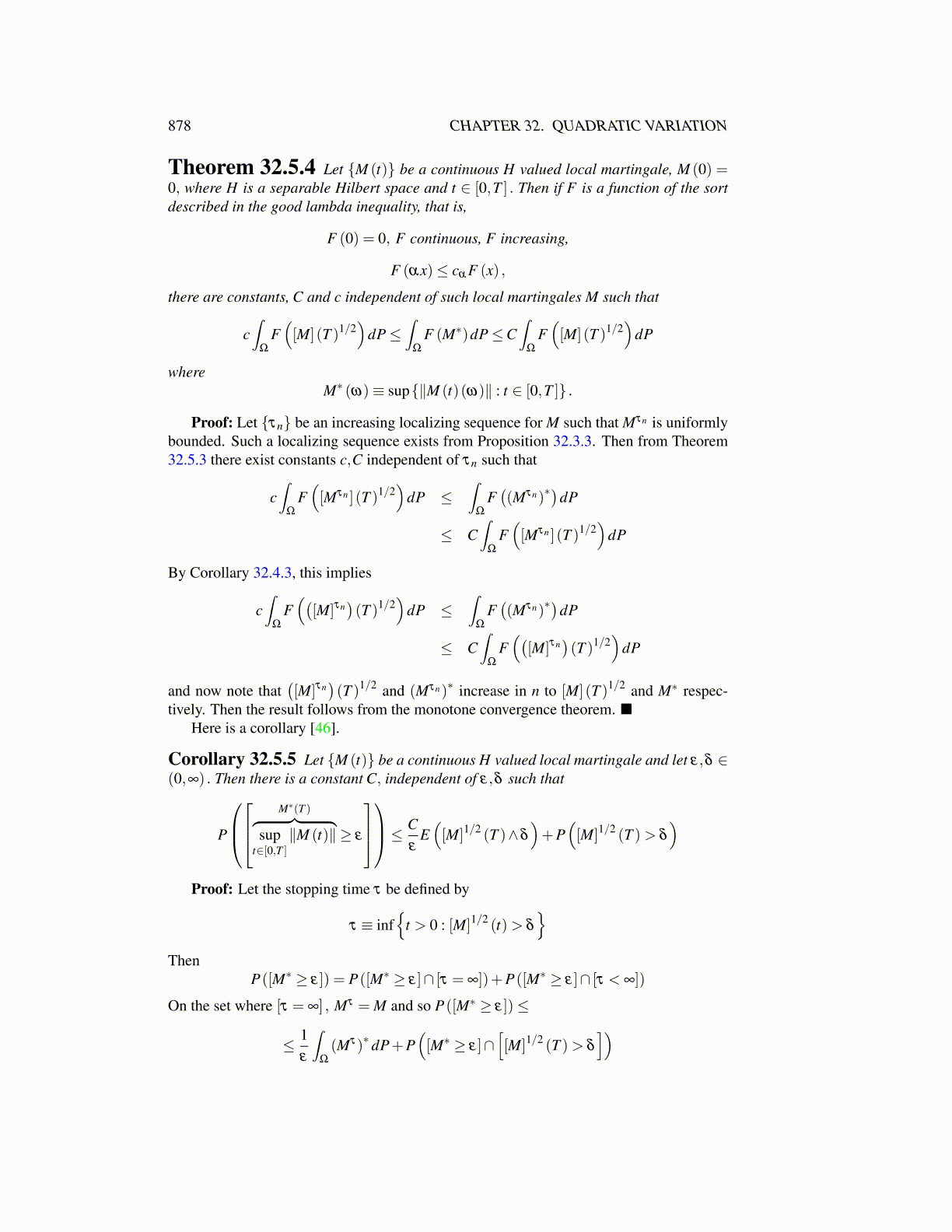
878 CHAPTER 32. QUADRATIC VARIATION
Theorem 32.5.4 Let {M (t)} be a continuous H valued local martingale, M (0) =0, where H is a separable Hilbert space and t ∈ [0,T ] . Then if F is a function of the sortdescribed in the good lambda inequality, that is,
F (0) = 0, F continuous, F increasing,
F (αx)≤ cα F (x) ,
there are constants, C and c independent of such local martingales M such that
c∫
Ω
F([M] (T )1/2
)dP≤
∫Ω
F (M∗)dP≤C∫
Ω
F([M] (T )1/2
)dP
whereM∗ (ω)≡ sup{∥M (t)(ω)∥ : t ∈ [0,T ]} .
Proof: Let {τn} be an increasing localizing sequence for M such that Mτn is uniformlybounded. Such a localizing sequence exists from Proposition 32.3.3. Then from Theorem32.5.3 there exist constants c,C independent of τn such that
c∫
Ω
F([Mτn ] (T )1/2
)dP ≤
∫Ω
F((Mτn)∗
)dP
≤ C∫
Ω
F([Mτn ] (T )1/2
)dP
By Corollary 32.4.3, this implies
c∫
Ω
F((
[M]τn)(T )1/2
)dP ≤
∫Ω
F((Mτn)∗
)dP
≤ C∫
Ω
F((
[M]τn)(T )1/2
)dP
and now note that([M]τn
)(T )1/2 and (Mτn)∗ increase in n to [M] (T )1/2 and M∗ respec-
tively. Then the result follows from the monotone convergence theorem. ■Here is a corollary [46].
Corollary 32.5.5 Let {M (t)} be a continuous H valued local martingale and let ε,δ ∈(0,∞) . Then there is a constant C, independent of ε,δ such that
P
M∗(T )︷ ︸︸ ︷
supt∈[0,T ]
∥M (t)∥ ≥ ε
≤ C
εE([M]1/2 (T )∧δ
)+P
([M]1/2 (T )> δ
)Proof: Let the stopping time τ be defined by
τ ≡ inf{
t > 0 : [M]1/2 (t)> δ
}Then
P([M∗ ≥ ε]) = P([M∗ ≥ ε]∩ [τ = ∞])+P([M∗ ≥ ε]∩ [τ < ∞])
On the set where [τ = ∞] , Mτ = M and so P([M∗ ≥ ε])≤
≤ 1ε
∫Ω
(Mτ)∗ dP+P([M∗ ≥ ε]∩
[[M]1/2 (T )> δ
])